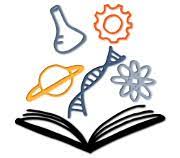Community Outreach
Community engagement is key to the success of science. By being transparent and inviting participation from the non-science community, we can build trust and partnership in STEM. Given the current climate of science illiteracy, mistrust and hesitancy, building this skill set is more important than ever.
Here, we give you some tools, tips and resources for creating science content for lay audiences, as well as resources to build interest and engagement in your science and tailor your communication style to different audiences.

Outreach allows you to help inform and increase the general public’s understanding and interest in science. Effective public communication requires you to translate your scientist-to-scientist conversations into language that can be easily understood by and generate excitement among non-scientists.
Effective outreach can increase public support of science in general and increases public understanding of specific issues. A scientist explaining an important issue must understand the knowledge level of their audience, as well as the perspective or opinion of science that the audience already has.
Here are some resources for useful STEM outreach tactics:
- Public Outreach Resources — what make outreach effective and why it is so important
- Getting your research Out There
- Science Communication made easy!
- Controversial Topics — how to approach challenging discussions
- Combatting Misinformation — science in a pandemic
- Building Credibility with the Public
- Data for the People — webinar series sponsored by Rockefeller University
Importance of Avoiding Jargon!

Many scientists are surrounded by others whose knowledge level matches their own. This presents a problem when trying to explain research to people outside this group. Nothing lessens the clarity of a presentation more than having to explain multiple terms and scientific definitions.
Here are some resources to help you translate your science so that anyone can get excited about your work:
- Simplify Your Story — this episode from Nature‘s Working Scientist Podcast has great tips
- Common Words — explain your research using only the 1000 most common English words
- Different Knowledge — relating your science to day to day life
AAAS Center for Public Engagement with Science & Technology
 The AAAS, American Association for the Advancement of Science, has numerous resources for bridging the gap between your research and the general public. The program includes:
The AAAS, American Association for the Advancement of Science, has numerous resources for bridging the gap between your research and the general public. The program includes:
- Toolkits for Communication and Public Engagement
- Workshops
Center for Public Interest Communications
Hosted by the University of Florida, the Center for Public Interest Communications includes publicly available articles, podcasts, and videos on strategies to improve your science communication skills.
ComSci Conversation
The official blog for Harvard University’s Communicating Science Conference with posts on communication strategies, events, and interesting podcasts.
National Informal STEM Education Network
NISE has a number of useful online resources, including webinars and guides, on their Resources for Scientists page. They also maintain a strong community of informal science educators (scientists included) that is great for networking.
Alan Alda Center for Communicating Science
Based at Stony Brook University, the center provides free online workshops and webinars based around the Alda Method, a communication strategy utilizing “improvisational theater techniques to train scientists to pay dynamic attention to the needs of their listener and learn to spontaneously adjust those needs.”
- Building Your Origin Story — a PowerPoint template by CUNY’s Advanced Science Research Center (ASRC) Science Education Coordinator, Kendra Krueger
- Five Levels — a show from Wired magazine where a researcher explains a scientific concept to five different people, including a 7 year old and a STEM postdoc
- COMPASS SciComm’s Message Box tool — a step-by-step workbook to help distill your message to different audiences and for different reasons
- Skype a Scientist
Teaching
- BioBus Teaching Resources
- LabXchange — free platform with virtual experiments, simulations, and educational activities
- Educational Resources — for sharing resources among teachers, parents & students
Creating Content
- Canva — a free service for creating social memes, logos and other STEM images.
- Unsplash — a free photo content resource
- Science Sketches — a free platform for creating animated science videos
- Video Subtitles
- COMPASS Communication Workshops
- Communication & Outreach — Office of Career Planning & Professional Development
 ScienceCafes — creating an informal space to start conversations about science among the general public
ScienceCafes — creating an informal space to start conversations about science among the general public- Skype a Scientist — connect with K-12 classrooms across the world
- Pint of Science — local “chapters” in 30+ countries
- Portal to the Public locations
- Data Nuggets — classroom activities co-created by teachers and scientists, based on real data from current research


